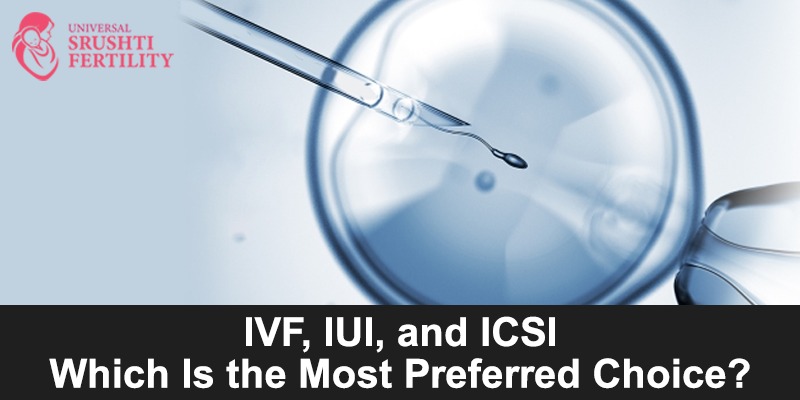IVF, IUI, and ICSI — Which Is the Most Preferred Choice?
IVF, ICSI, and IUI are the most popular assisted reproductive techniques, but they are quite distinct fertility procedures, and many patients often get confused about which one is best for them.
Here are the key distinctions between IVF, ICSI, and IUI, as well as when each is typically suggested. Remember that everyone’s reproductive journey is unique, and what works for one person may not work for you:
IVF
In-Vitro Fertilization, or IVF, is the process of fertilizing eggs in a lab with either the partner’s or a donor’s sperm after gently stimulating your ovaries to generate quality mature eggs. Eggs are checked for evidence of fertilization after being combined with sperm in a specific dish. The best-quality embryo is chosen for transfer and put into your uterus to develop and implant for pregnancy.
Why IVF may be recommended
IVF is intended to address problems like blocked or damaged fallopian tubes, which hinder sperm from fertilizing an egg in the body. Additionally, it could be suggested in certain situations of unexplained infertility or in mild occurrences of male infertility.
ICSI
Intracytoplasmic Sperm Injection, or ICSI, is a developed kind of in vitro fertilization. In order to fertilize an egg, the best single, healthy sperm from the sample is removed and injected directly into the egg.
Why ICSI could be recommended
Male infertility problems, such as low sperm counts or immobile sperm, which prohibit sperm from spontaneously fertilizing the egg, are treated using ICSI. It is also used for males whose sperm has significant DNA damage or sperm that has been surgically removed.
IUI
Intrauterine Insemination entails injecting donor sperm or your partner’s sperm into your uterus at the time you are ovulating in the hopes that the egg will become fertilized and result in a pregnancy.
Why IUI could be recommended
When using donor sperm to conceive, IUI is a popular procedure among patients since it is a fast and easy technique to attempt to become pregnant.
Clear fallopian tubes, enough healthy sperm, and a mature egg that can fertilize are necessary for IUI to be successful. We may combine IUI with fertility medications if you have irregular ovulation. If not, it could be suggested to use IVF instead.
IVF, IUI, and ICSI Treatment in Hyderabad
Which is the best option—IVF, ICSI, or IUI?
The fertility therapy that is most appropriate for you is based on the findings of your fertility tests. For the best chance of success, you must take an individualized strategy.
Things including your medical background, age, and how you responded to any prior treatment cycles are considered.
If your partner’s sperm examination shows a sperm abnormality, you could be offered the choice to attempt IUI or you might be advised to go directly to IVF or ICSI. based on you diagnosis.


